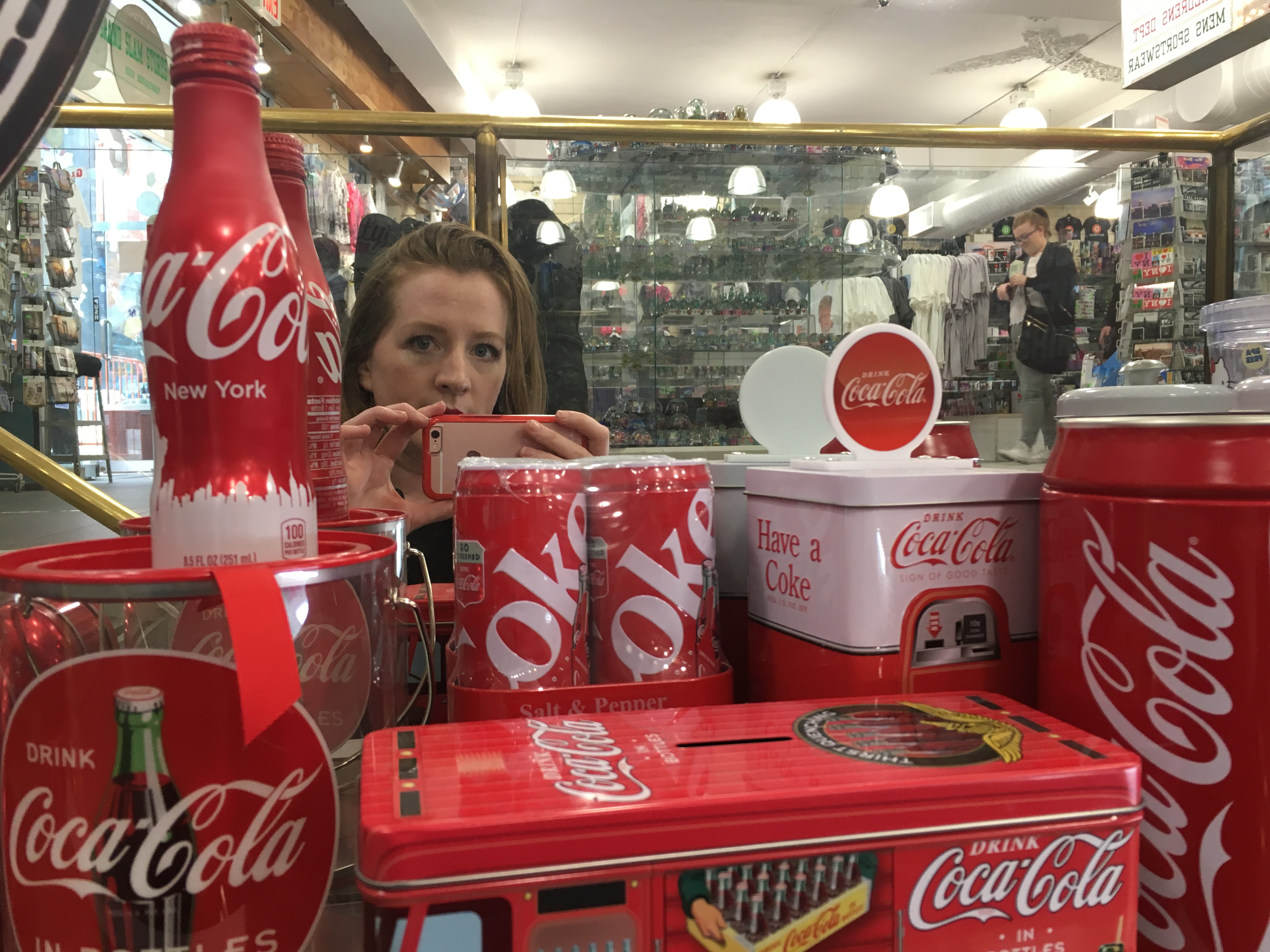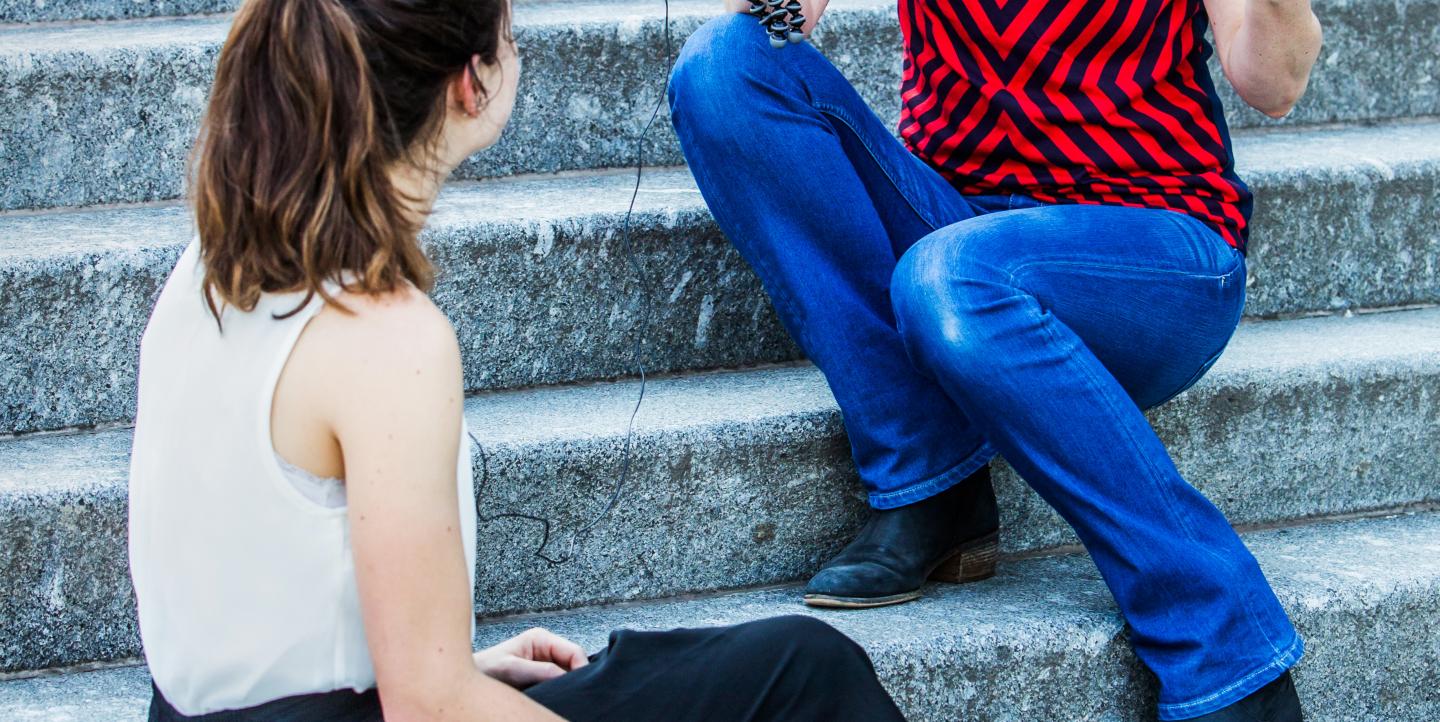“Do women necessarily put themselves forward as readily as men would?” wondered Eleanor Mannion, mobile journalist at RTE, Ireland’s public broadcaster, and director of the first 4K documentary broadcast in Europe.
Mannion, whose hourlong documentary was shot entirely on an iPhone, has talked about her project on several occasions at other media outlets like the BBC and ITV, conferences, Skyping with a journalism class in the U.S.
But promoting oneself doesn’t necessarily come easily to many women.
“In the workplace, I think women have to try harder to put themselves forward,” she says. “I grew up with the idea that you weren’t to appear too confident, because that would blend in to the arrogance, and nobody wants that; it’s not seen as a very feminine trait.”
Mannion believes mobile journalism has empowered her to tell her stories and to be self-reliant. For her documentary, “The Collectors,” she followed six people across Ireland to observe their interests in Barbies, Legos, comic books or Coca-Cola memorabilia. Being by herself, she says she was able to get to know very well her characters who were more relaxed.
People in Geertje Algera’s stories also open up more easily when she films with her smartphone. The journalist and mojo trainer, who used to work with a camera crew and then as a video journalist, also thinks she was able to tell complex, personal stories thanks to her mobile journalism skills.
Still, she wonders why she feels like there are fewer women in mobile journalism.
“I have noticed that in my former company, for example, there are many females who are working as reporters — but then in mojo, I’m the only one,” she says.
If this is the case in the Netherlands, Corinne Podger, founder of MoJo London, MoJo Sydney and digital editorial capability manager at Fairfax Media, one of Australia’s largest independent publishers, warns about a misperception about the lack of women in mobile journalism.
“I don’t think everybody is familiar with the term ‘mojo,’ and that perhaps gives the sense that there aren’t many female mobile journalists when in fact it’s not the case,” she says, adding many people — including women — simply see themselves as “journalists who use their phones as part of their job.”

“Smartphones have leveled the gender playing field in terms of the equipment because it is lightweight and portable,” explains Podger. “That's particularly the case in audiovisual journalism where the equipment — certainly in the analog era — was very heavy.”
Algera said she still struggles to understand why she’s not seeing more women mojos in the Netherlands despite the "accessibility of mobile journalism."
“Maybe women think it’s very technical,” she ventures.
Glen Mulcahy, head of innovation at RTE and founder of Mojocon, feels there is maybe a perception that mobile journalism is “techy and complicated.” For the two years he’s run Mojocon, he’s been trying to get more women speakers. For his first conference, about one-third of speakers were women.
“We have a heavily female leaning board [at RTE] and they were really mad about the fact we hadn’t managed to tip it back to 50/50,” he says. “Mojocon 2 improved somewhat, but nowhere near as much as I would have liked to.”
Podger organizes regular events for the mojo community in London where she used to work. The last three speakers who came to share their experiences were all women — not because she was particularly looking for female speakers, but because "these journalists were doing particularly strong, innovative work that was worth sharing publicly."

Podger has mentored both women and men. However, she says she has observed that women “tend to be less confident in speaking about their achievements in public and putting themselves forward for promotion, speaking opportunities at conferences and awards,”and encourages female trainees and mentees to actively seek these opportunities.
Throughout her career, Podger feels she has been lucky to have managers who encouraged her and her colleagues irrespective of their gender, but she actively sought to “increase her own comfort level in speaking about [her] work,” taking training opportunities when she was at the BBC.
“I would encourage women who feel they need greater confidence to undertake that kind of training, either through their workplace or privately, and to actively mentor and support their colleagues to informally develop those skills.”
Public speaking and promoting oneself have become even more important in the social media era. Podger acknowledges that now, “journalists represent two brands: the media outlet where they work, either as staff or freelancers, and their personal brand on social media.”
“The degree to which one promotes one’s work and activities on those platforms can influence the degree to which one is noticed by employers and colleagues and is offered jobs and opportunities,” she says.
Main image of Geertje Algera courtesy of Shody Careman. Second image courtesy of Eleanor Mannion. Third image of Corinne Podger (third from left) with mojo trainees courtesy of Podger.

